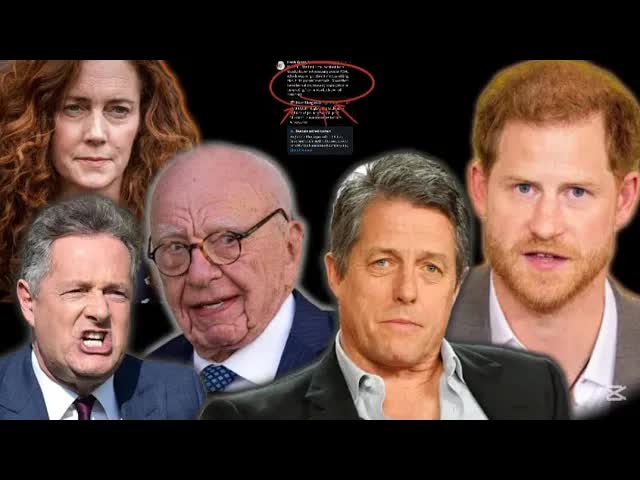In a recent appearance on BBC Radio 4, actor and activist Hugh Grant shed light on the ongoing struggle against media malpractice, particularly in the wake of settlements reached with News Group Newspapers (NGN).
His candid insights into the complexities of this issue have ignited discussions about accountability and the need for further investigations into the press.
Grant, alongside other notable figures like Prince Harry, has been vocal about his experiences with press abuse.
During the interview, he explained that the decision to settle rather than pursue a trial was not taken lightly.
He emphasized that both he and Harry sought to uncover the truth behind serious allegations, including a significant cover-up involving the deletion of 30 million emails.
These emails, he argued, could have provided crucial evidence of wrongdoing by powerful individuals within the media.
The actor pointed out that the legal system is often stacked against those seeking justice.
With NGN reportedly spending £1 billion to settle over 1,300 claims, Grant argued that these settlements were less about resolution and more about avoiding scrutiny of the organization’s past misdeeds.
He believes this strategy effectively protects those at the top from facing the consequences of their actions.
Grant did not shy away from calling for new criminal investigations, particularly in light of the recent findings related to the media’s conduct.
He expressed a strong desire for a fresh inquiry into the systemic issues that have allowed such abuses to persist.
His call for the much-discussed Leveson Part 2 inquiry highlights the urgent need to delve deeper into the relationship between the press, politics, and the public.
The Culture Secretary, Lisa Nandy, recently dismissed the idea of Leveson 2, arguing that its framework is outdated given the evolution of news consumption in the digital age.
However, Grant countered this perspective, suggesting that the power of traditional newspapers remains significant in shaping public discourse.
He asserted that the influence of print media continues to permeate online news, reinforcing the necessity for accountability.
Grant’s concerns extend beyond historical malpractice; he sees an ongoing injustice in the fact that many key players in the media landscape still hold influential positions today.
He pointed to the current CEO of News Group Newspapers, who was previously the editor of The Sun during its most scandalous period, as an example of how little has changed at the top levels of power.
Moreover, the actor underscored the importance of ensuring that those responsible for ordering illegal activities are brought to justice.
He highlighted the need for criminal charges against individuals who have previously denied their involvement in such actions, particularly regarding perjury during investigations.
As discussions continue, Grant’s remarks also shine a light on the role of Prince Harry in this fight for justice.
The Duke of Sussex’s legal actions against NGN have already led to a public apology and admission of guilt from the media giant, marking a significant shift in the narrative surrounding press abuses.
Yet, Grant insists that this is merely the beginning of a much larger battle.
The push for Leveson Part 2 remains a central theme in Grant’s advocacy for reform.
He believes that understanding the full extent of corruption within the media requires a thorough investigation into the roles played by politicians, police, and media executives alike.
This inquiry is seen as essential for ensuring that those responsible are held accountable.
While the road ahead seems daunting, Grant’s determination offers a glimmer of hope.
His commitment to fighting for media justice reflects a broader movement aimed at exposing the truth and demanding accountability from those in power.
The ongoing dialogue surrounding the NGN settlement and the calls for renewed investigations signal that the quest for transparency is far from over.
In a landscape where the powerful often evade scrutiny, Grant’s voice represents a crucial plea for change.
The battle against media malpractice may be long and complex, but with advocates like him leading the charge, there is a renewed sense of purpose in the fight for justice.
As the public watches closely, the question remains: will the forces of accountability prevail?
